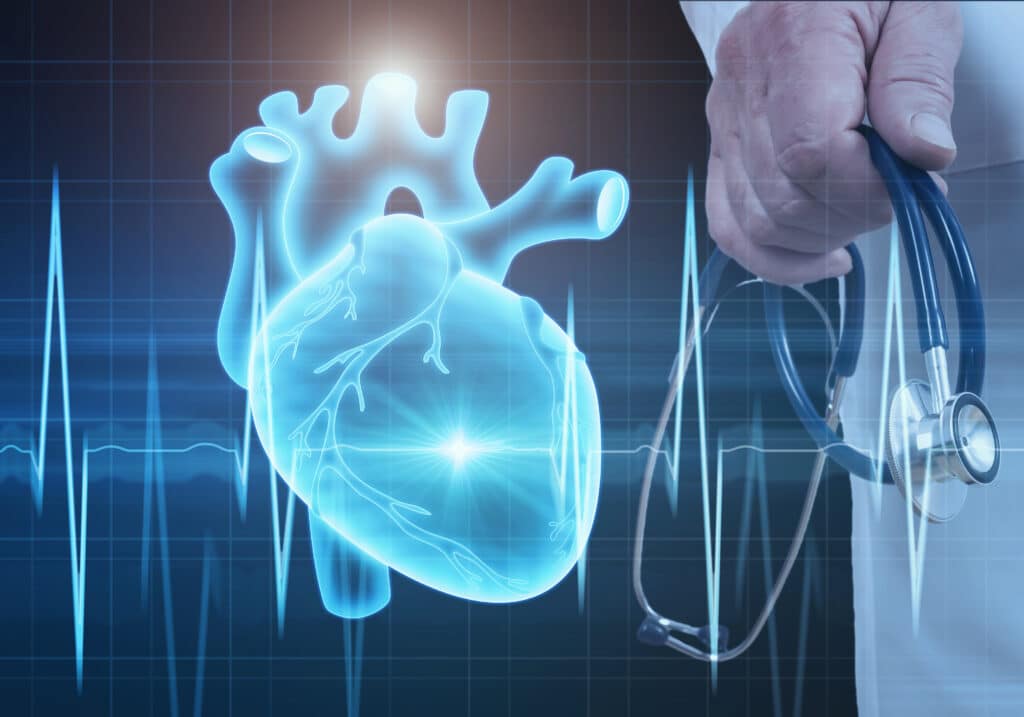Heart health after 60: Cardiology care for golden years
Heart health after 60: Cardiology care for golden years
Blog Article
Recognizing the Importance of Cardiology in Modern Medical Care Providers
Cardiology plays an essential role in modern health care, particularly as heart problem continues to be the leading source of death worldwide. Advancements in diagnostics and treatment have actually transformed patient care, enabling earlier interventions and boosted outcomes. The change towards preventive cardiology equips individuals to handle their wellness proactively. As technology continues to evolve, the combination of innovative options may further redefine cardiology's effect on public health, motivating a better exam of emerging fads and their implications.
The Frequency of Heart Condition and Its Effect On Public Health
Heart illness stays the leading cause of death globally, its impact extends much beyond individual people to impact public wellness systems and economic climates. The high frequency of cardiovascular disease places a significant strain on medical care resources, requiring raised financing for prevention, rehab, and treatment programs. Public health initiatives have to resolve danger elements such as obesity, cigarette smoking, and less active way of livings, which contribute considerably to the climbing incidence of heart conditions.Moreover, the financial worry connected with heart problem is immense, encompassing not just straight medical prices yet likewise indirect costs connected to lost efficiency and early mortality. Neighborhoods encounter challenges in handling these prices, typically causing disparities in healthcare gain access to and outcomes. As the population ages and lifestyle-related dangers proceed to rise, the seriousness for effective cardiology treatments becomes extremely important. Dealing with heart disease is not just an issue of individual health but additionally an important public health and wellness priority.
Advancements in Heart Diagnostics and Imaging Techniques
Recent improvements in heart diagnostics and imaging strategies have actually transformed the area of cardiology, improving the capacity to discover and keep an eye on heart diseases. Strategies such as heart MRI, CT angiography, and echocardiography have actually become significantly innovative, supplying detailed pictures of heart structures and features. These modalities enable the early identification of conditions like coronary artery illness, cardiac arrest, and valvular disorders.Moreover, developments in non-invasive diagnostics, such as wearable technology and remote monitoring tools, have actually encouraged patients and doctor. These tools assist in real-time tracking of heart rhythms and other vital indications, causing timely interventions. Additionally, expert system is being incorporated right into imaging analysis, enhancing accuracy and performance in medical diagnosis.
Developments in Therapy Alternatives for Heart Conditions
Recent advancements in cardiology have actually caused substantial developments in therapy options for heart conditions. These include advanced medical techniques that improve step-by-step end results and arising medicines that provide brand-new methods for treatment. As the area progresses, these developments play an essential function in improving patient treatment and results.
Advanced Surgical Techniques
Technologies in medical techniques have changed the landscape of cardiology, using brand-new wish for clients with heart conditions. Minimally intrusive treatments, such as catheter-based interventions, have actually greatly decreased healing times and healthcare facility keeps. Methods like robotic-assisted surgical procedure improve precision, permitting doctors to browse complicated anatomical frameworks with higher accuracy. In addition, innovations in imaging technology help with real-time visualization during treatments, boosting end results. Transcatheter aortic valve replacement (TAVR) exhibits an advancement in treating aortic stenosis, making it possible for valve substitute without open-heart surgery. In addition, hybrid approaches that incorporate catheter-based and surgical methods supply tailored remedies for different heart issues. These advanced medical strategies not only enhance client safety and security yet also increase treatment options, emphasizing the important duty of technology in contemporary cardiology methods.
Emerging Treatments and medications
As the landscape of cardiology proceeds to develop, emerging drugs and treatments play a critical role in improving treatment options for heart conditions. Technologies such as novel anticoagulants and progressed lipid-lowering representatives have actually changed the monitoring of cardiovascular diseases, significantly reducing patient morbidity and mortality. In addition, the advancement of genetics therapies and regenerative medication provides appealing methods for dealing with conditions previously regarded permanent. Medical tests are continually exposing the efficiency of these treatments, pushing the borders of conventional therapies. The integration of digital wellness technologies assists in customized medicine, permitting for tailored therapy plans based on genetic and lifestyle elements. Jointly, these developments emphasize the vibrant nature of cardiology, enhancing person results and redefining requirements of treatment in modern medical care.
The Role of Preventive Cardiology in Client Care
Preventative cardiology plays a necessary duty in patient treatment by concentrating on the recognition of danger factors that add to heart condition. Via way of life alteration techniques and early discovery techniques, health care providers can successfully lower the incidence of cardio events - Cardiology Jupiter. This positive approach not just improves patient results but additionally advertises long-term wellness
Risk Element Recognition
While heart diseases stay a leading source of morbidity and death worldwide, reliable danger variable identification works as a keystone of preventive cardiology. Recognizing danger variables such as high blood pressure, hyperlipidemia, diabetes, and household history is important for early treatment. Medical care professionals utilize different screening techniques to review these aspects, permitting tailored safety nets. Additionally, understanding a client's lifestyle selections, such as cigarette smoking and physical lack of exercise, even more educates danger evaluations. This extensive assessment makes it possible for medical professionals to develop tailored treatment plans targeted at mitigating risks. By prioritizing threat element identification, healthcare systems can boost individual outcomes and minimize the total burden of cardiovascular illness, inevitably adding to boosted public health strategies and source allocation.
Way Of Living Alteration Methods
A plethora of researches highlights the essential duty of way of life adjustment techniques in decreasing cardiovascular illness danger. These methods incorporate dietary changes, boosted exercise, smoking cigarettes cessation, and weight monitoring. By taking on a heart-healthy diet regimen abundant in fruits, veggies, whole grains, and lean proteins, individuals can reduce cholesterol degrees and high blood pressure. Normal physical activity enhances the heart and look what i found improves total cardiovascular health. Furthermore, stopping cigarette smoking greatly lowers the threat of heart problem and improves healing rates for those with present problems. Weight administration further adds to cardio health and wellness by reducing other danger elements such as diabetes and high blood pressure. Applying these way of life alters not just advertises private wellness yet also works as a foundation of precautionary cardiology in patient treatment.
Very Early Discovery Methods
Way of living alterations considerably contribute to decreasing heart disease dangers, yet they are most effective when matched with early detection techniques. Preventative cardiology highlights the relevance of identifying potential heart concerns prior to they intensify right into severe conditions. Strategies such as high blood pressure surveillance, cholesterol testing, and progressed imaging modern technologies like echocardiograms play essential functions in examining cardiovascular health. Biomarkers and hereditary screening likewise enhance the precision of very early discovery, permitting for customized preventative strategies. Normal cardiac threat examinations equip doctor to interfere proactively, potentially avoiding heart strikes and strokes (Cardiology). By incorporating these early detection approaches right into regular treatment, clients can take advantage of timely lifestyle interventions and targeted treatments, ultimately enhancing outcomes and boosting quality of life
Integrating Modern Technology Into Cardiology Practices
As advancements in modern technology remain to reshape various areas, the combination of innovative tools and systems into cardiology practices has become important for boosting patient care and results. Telemedicine systems allow cardiologists to check clients remotely, enhancing accessibility to care while lowering the worry on medical care centers. Wearable devices, such as smartwatches, allow continual heart price tracking, notifying both medical professionals and patients to possible concerns in real-time. Furthermore, expert system (AI) is being utilized to analyze large amounts of cardiac data, assisting in early medical diagnosis and customized treatment plans. Advanced imaging strategies, including 3D echocardiography, enhance visualization of heart structures, resulting in much more precise interventions. Electronic health and wellness documents (EHRs) enhance client details administration, making sure that cardiologists have immediate accessibility to vital information. With each other, these technological innovations are transforming cardiology, advertising proactive management and enhanced wellness outcomes for clients with cardio problems.
The Relevance of Client Education and Involvement
Patient education and learning and engagement play a crucial duty in the administration of cardio wellness. By outfitting patients with understanding regarding their problems, treatment options, and way of life adjustments, healthcare providers equip individuals to take an energetic role in their treatment. This proactive technique can bring about boosted adherence to recommended drugs, dietary modifications, and workout routines, ultimately decreasing the danger of complications.Engagement likewise cultivates a strong patient-provider partnership, encouraging open communication and trust. When patients really feel informed and entailed, they are more probable to voice problems and ask concerns, which can result in much better professional results. Furthermore, academic resources, such as workshops or electronic systems, can improve understanding and advertise self-management strategies. On the whole, prioritizing patient education and learning and involvement is vital for improving cardio health and wellness, enhancing lifestyle, and decreasing medical care expenses associated with heart check my site diseases.
Future Fads in Cardiology and Their Prospective Influence

Frequently Asked Questions
What Way Of Living Adjustments Can Decrease Heart Illness Risk?
The current inquiry addresses way of life modifications that can significantly reduce heart problem danger. Cardiology care. Embracing a balanced diet regimen, participating in regular physical task, preserving a healthy weight, taking care of anxiety, and avoiding cigarette can significantly boost cardiovascular health
Just How Can I Recognize Very Early Indications of Heart Troubles?
Acknowledging very early indications of heart troubles includes my blog monitoring signs and symptoms such as breast discomfort, shortness of breath, exhaustion, and irregular heart beat. Timely recognition of these indicators can motivate required clinical analysis and intervention for far better outcomes.
What Are the Distinctions In Between Cardiologists and Cardiac Surgeons?
The distinctions in between cardiologists and cardiac doctors lie in their functions; cardiologists primarily manage and identify heart disease through non-invasive techniques, while heart surgeons carry out procedures to fix architectural heart concerns. Each plays an important, unique duty.

Just how Usually Should I Obtain My Heart Health And Wellness Checked?
The frequency of heart health checks differs based upon individual threat aspects. Normally, adults need to go through assessments every one to 2 years, while those with current conditions might require even more regular assessments as suggested by health care professionals.
What Duty Does Genetics Play in Heart Disease Threat?
Genetics substantially affects heart disease threat, with familial patterns showing inherited problems. Particular genetics can predispose people to hypertension, cholesterol concerns, and various other cardiovascular issues, highlighting the significance of hereditary screening in evaluating heart health and wellness. Heart disease stays the leading reason of death internationally, its impact prolongs much beyond specific patients to impact public wellness systems and economic climates. Public wellness initiatives need to address danger variables such as obesity, cigarette smoking, and less active way of lives, which add substantially to the rising occurrence of heart conditions.Moreover, the financial burden connected with heart illness is tremendous, encompassing not only straight clinical prices but likewise indirect costs connected to lost productivity and premature death. Preventative cardiology plays an essential role in individual treatment by concentrating on the recognition of risk factors that contribute to heart illness. Man-made knowledge (AI) and equipment learning are enhancing diagnostics and client tracking, allowing very early discovery of heart illness. The distinctions in between cardiologists and heart specialists exist in their duties; cardiologists largely detect and take care of heart problems via non-invasive approaches, while heart specialists do medical procedures to fix structural heart issues.
Report this page